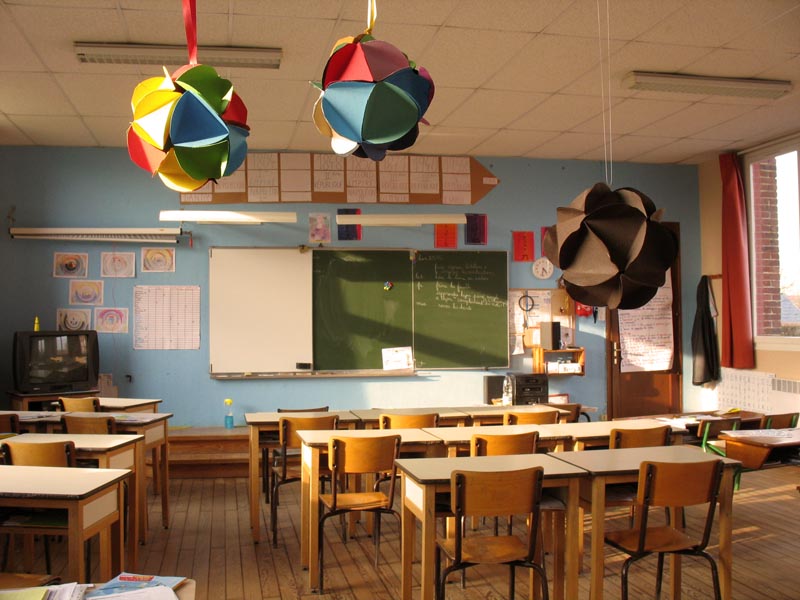
Learning to Manage Emotions Boosts Children’s Well-being
English, Math, History, Geography…classes found in school curricula build foundational knowledge and promote future success.
Schools lay the groundwork for cognitive development, especially in academic areas. But what about emotional development? Proficiency in that is equally important for leading a successful life. Yet, little effort has been made in school to teach children how to manage their feelings.
With the introduction of RULER, this may not be the case for much longer. More and more schools around the U.S. are implementing the program aimed at teaching students—and teachers—to ‘Recognize, Understand, Label, Express, and Regulate’ emotions.
Supported by the Yale Center for Emotional Intelligence, it incorporates social and emotional skills training into the school curriculum to support child development. Specific curricula are available from kindergarten to grade 12, and ongoing implementation is necessary to solidify these skills as children get older.
“They’ve started to teach students about feelings as explicitly as they teach math and reading,” writes Seattle Times education reporter John Higgins.
The program is based on the work of two psychologists, John Mayer and Peter Salovey, who began their scientific study of emotional intelligence over two decades ago. They focus on a direct link between critical-thinking skills and emotions.

According to Meyer and Salovey emotional intelligence is the ability to identify, monitor, and manage the emotions of others and oneself, to guide actions and ways of thinking.
Studies show that those who are reluctant to understand and express their feelings experience higher levels of anxiety, depression, and certain psychiatric disorders. They also report lower levels of well-being and social support.
At school, children experience a wide range of emotions every day. In addition to the stress of managing their studies and homework, they face a number of social struggles, such as conflicts with friends, romantic relationships, and bullying.
Marc Brackett, Director of the Yale Center for Emotional Intelligence, and one of the developers of RULER, says that the way students feel at school has a profound effect on how they learn, influencing their chances of success at school, at home, and with friends. And some individuals are generally more successful at handling emotions than others.
Through different tools, RULER provides a common language for expressing emotions, for dealing with conflicts between students, and for addressing conflicts between students and teachers, making for an open and supportive environment necessary for learning. For example, the “mood meter,”—a sheet of paper divided into four coloured quadrants—is designed to help students build a vocabulary around different emotions.
“I have a teacher who checks in with the Mood Meter on Monday mornings and it’s nice to just know that someone’s listening. It gets us in the mood to work, eases us back into school,” explains a grade 11 high-school student in the program.

Other tools, such as the “meta-moment”, train students to use the few seconds following a moment of anger to take a deep breath and imagine how their “best self” would react.
One 7-year-old student talks about her experience with the meta-moment:
“When I’m not in a good mood, RULER can help me solve the problem. Like when my brother pushed sand on my sand castle and wouldn’t fix it. I felt really angry at him, but I took a meta-moment and realized it wasn’t hard to fix what he did and he didn’t do it on purpose. Then I felt a little more forgiving.”
Some are critical of social and emotional learning initiatives within a classroom setting, arguing that schools are not an appropriate venue for emotional education. Others emphasize the price-tag; an online resource and four days total of in-person training costs $10,500 per school (for up to three participants).
However, Brackett’s research shows that implementing RULER can improve a school’s climate while fostering positive development and academic achievement among its students. Some notable improvements include better relationships between students and teachers, more student autonomy and leadership, improved academic success, and fewer reports of bullying.
Students’ mental health profiles greatly improve as well. Kids and adolescents who are involved with this program have experienced reduced levels of anxiety, depression, aggression, hyperactivity, social stress, and alcohol and drug usage. And research shows how children’s ability to handle their emotions and to be mindful of others’ feelings has a significant effect on their mental health.
Not all children come with the tools necessary for academic and social success. Programs like RULER provide a platform for children to learn how to navigate emotional struggles, so they can leave their primary education with methods to succeed in their work and personal lives.
– Eleenor Abraham, Contributing Writer
Image Credits
Feature: holiveira on DeviantArt
First: evie_stasis on Flickr
Second: 1aurent on DeviantArt



